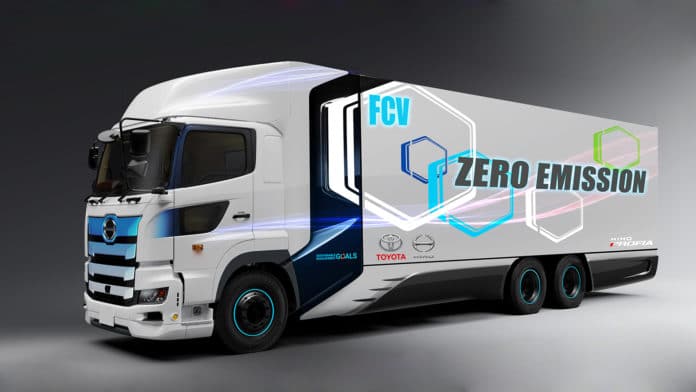Toyota, a leading developer of hydrogen fuel cell electric propulsion that emits pure water as a by-product, has announced a partnership with fellow Japanese automaker Hino Motors Ltd. for the development of a heavy-duty hydrogen fuel truck. They also want to continue the initiative towards its practical use through verification tests and various other processes.
The two companies have announced ambitious plans to reduce CO2 emissions by 2050 and to develop and widespread the development of electric vehicle technology. One of the key elements in further reducing emissions is the reduction of pollutant emissions from commercial vehicles, which in Japan account for 60% of the total CO2 emissions from commercial vehicles.
Heavy-duty trucks are typically used for highway transportation; therefore, the proper delivery range, load capacity, and fast refueling capability are essential. For this reason, high energy density hydrogen fuel cell vehicles are a very good solution.
The chassis of the new hydrogen-powered truck has been designed with optimum fuel cell packaging and reduced comprehensive weight to ensure proper load capacity. The two Japanese manufacturers do not go into detail, but Toyota has confirmed that the fuel cells are the same as those used for the new Mirai sedan. In addition to the two fuel cells, the 12-meter long vehicle with a total weight of 25 tonnes will be equipped with an electric motor, a lithium-ion battery, and a “large-capacity” hydrogen tank. The autonomy would be about 600 kilometers, which is excellent for both the environment and the utility of the commercial vehicle.
Toyota and Hino see hydrogen as an important source of energy for the future; the two companies have been working together for more than fifteen years – since the joint launch of a fuel cell bus in 2003 – on the development, deployment, and renewal of fuel cell technologies. In the future, Toyota and Hino will further strengthen their partnership and intensify their efforts to achieve a “hydrogen society.”
